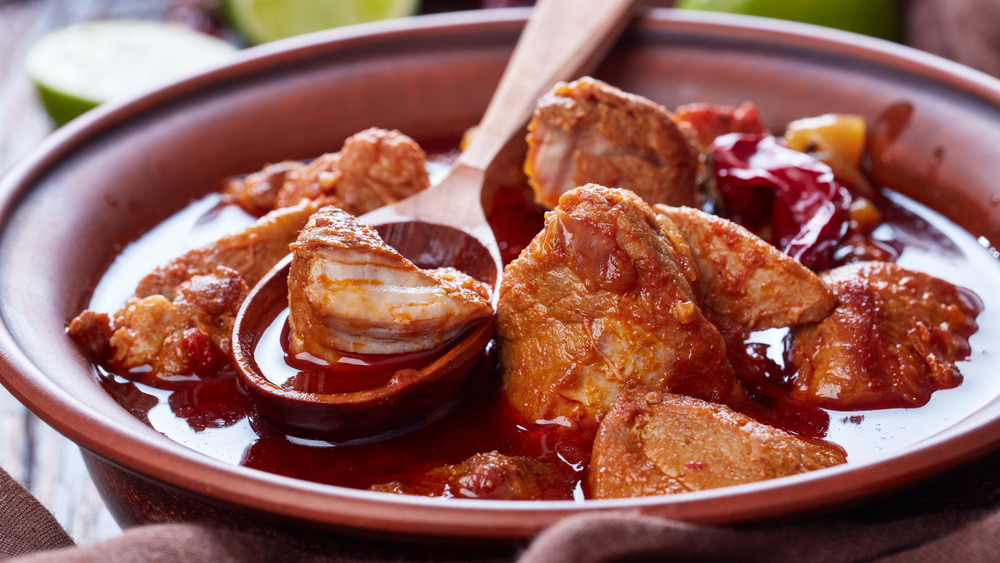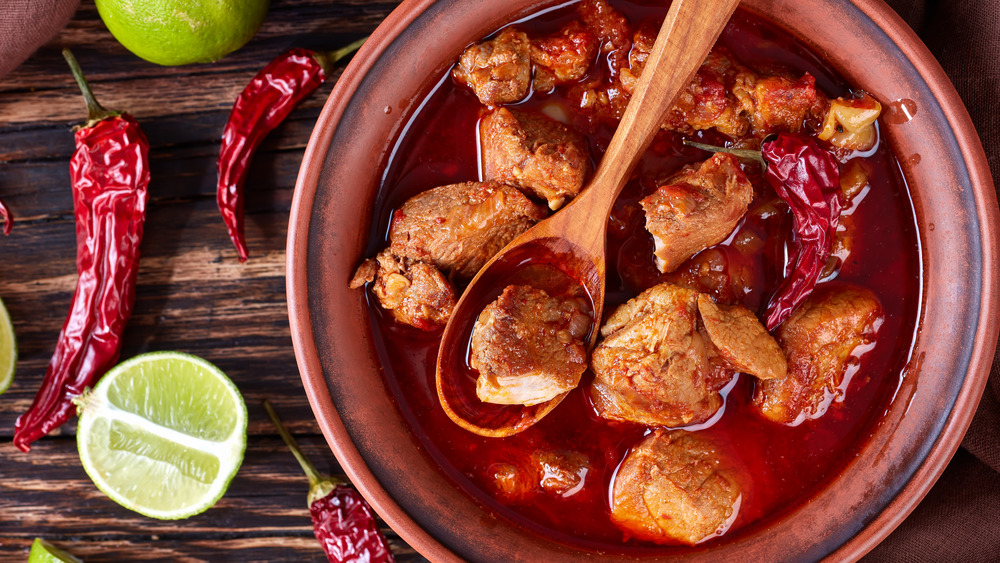This Is The Best Part Of Pork For Carne Adobada
If you're a fan of Mexican food, then you might be fairly familiar with the cooking styles and recipes from south of the border. As we all know, cooking crowd favorite dishes like carnitas, chile verde, and carne adobada require certain cuts of meats and spices to bring these mouth-watering plates to fruition. While these Mexican meals are traditionally all pork based (but can have alternative beef recipes), the key to pulling these dishes off lies in the texture and flavor of the meat. Use the wrong cut of meat, and your best efforts will be for naught. When it comes to using the perfect cut of meat, are you sure you're using the right one?
To create a dish worthy of seconds, like carne adobada, also known as carne adobada stew, your obvious go-to should be pork shoulder, per Delighted Cooking. This thrifty cut of meat is your best bet to serve a crowd and is perfect when marinated in the spicy chili pepper and vinegar sauce known as adobo. Not to mention, this type of cut is tiered with fat that comes from the pig's shoulder region, and is also a relatively inexpensive meat, according to The Kitchn.
Pork shoulder for the win
Pork shoulder might go by different names at various stores — it can also be known as pork butt or Boston butt — but this is all shoulder meat. If you're worried you're getting the pork's rear, worry not, as that part is called the ham (via The Kitchn). Although pork shoulder and pork butt are versatile enough to be used interchangeably, when it comes to carne adobada, we recommend you use pork shoulder, as pork butt is usually a cut used for a shredded dish like pulled pork.
Weighing anywhere from five to 10 pounds, pork shoulder is known as a fatty, tough cut of meat that can be challenging to properly cook. However, when left low and slow for a few hours to cook, the end result is glorious juicy, tender meat that shreds instantly at the touch of a fork.
Next time you try your hand at making carne adobada for dinner, stick with pork shoulder. You'll thank us later.

